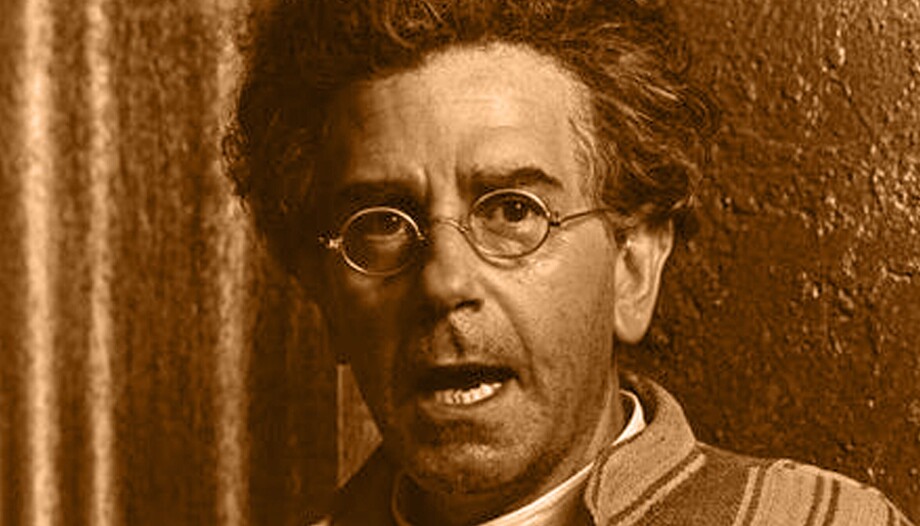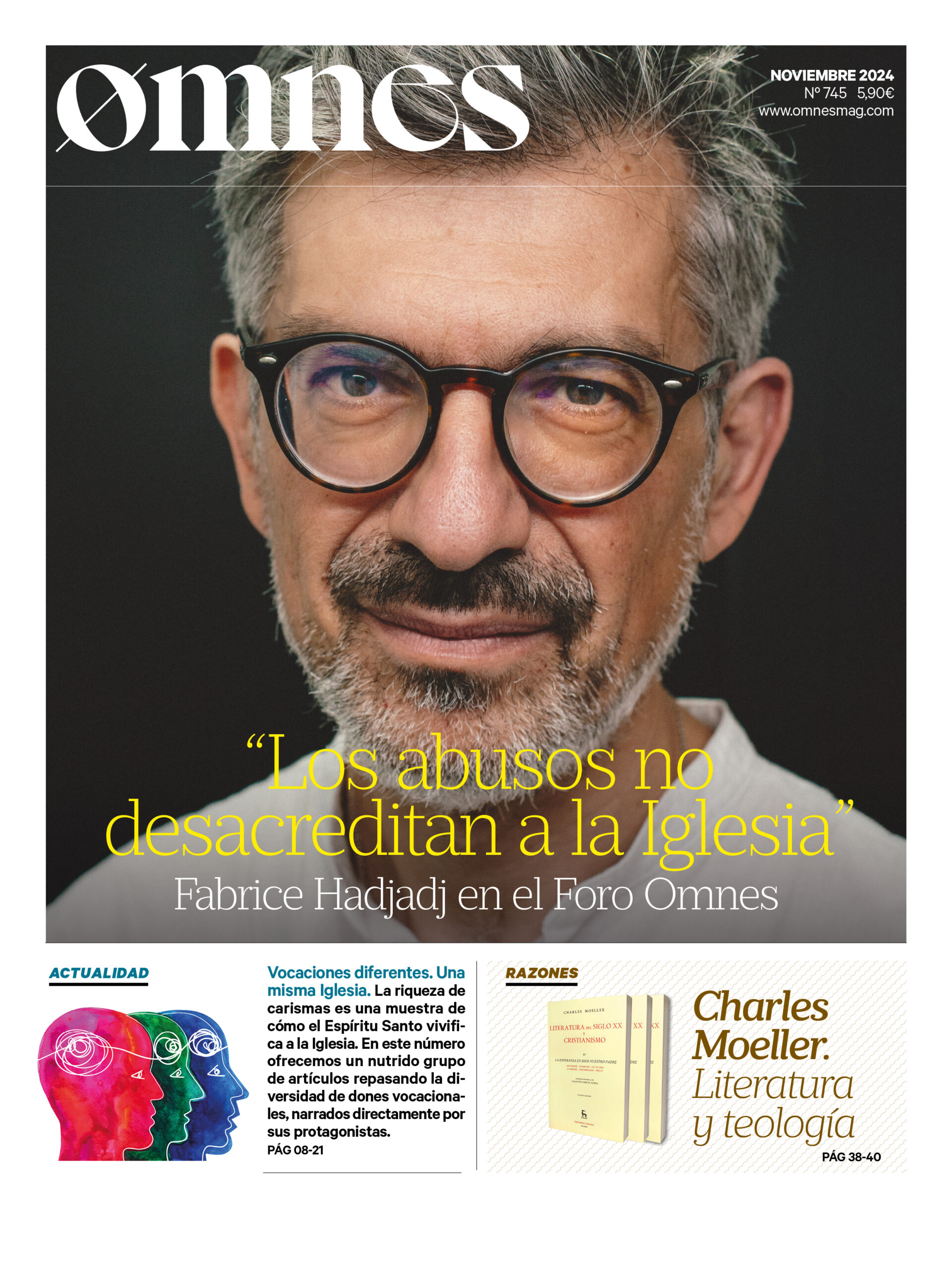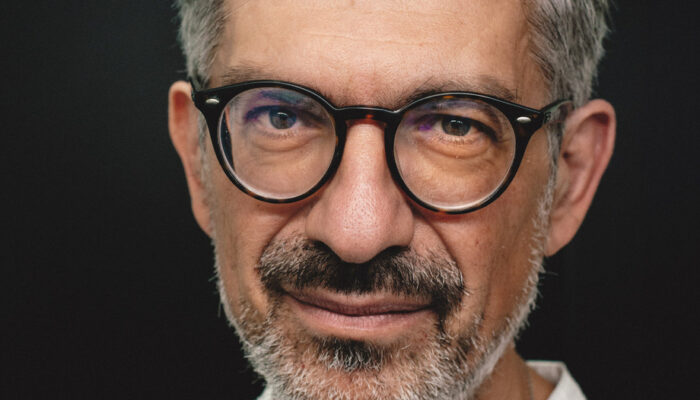Eugenio Corti said: "The writer is obliged to give an account of the whole reality of his time: that is why he cannot specialize (Sertillanges, in his work "The Intellectual Life", had reflected on the same need for the scholar and the writer). He is the only professional who does not have the right to be merely specialized. However, nowadays one cannot know everything: one must acquire a real competence at least in the most important fields. I chose to study communism (the greatest danger for humanity in this century) and Catholic current affairs (because I see in the Church the greatest hope)".
The writer who "sees
The result of these studies will be the play "Trial and Death of Stalin", written between 1960 and 1961 and performed in 1962. Paola Scaglione writes: "From this moment on, Eugenio Corti, because of his own reasoned anticommunism, is hindered, in a systematic and poorly disguised way, by the great press and the world of culture, which at that time was strongly oriented towards the left".
Corti, on the other hand, clearly illustrates what are not his paranoias or fears, but very well documented realities, as well as experienced in his own skin, allowing him to make his own analysis and bravely - and with full knowledge of the facts - formulate predictions for the future (which will invariably come true).
Eugenio Corti has seen ("οἶδα"), and wants to recount, the horrors and massacres carried out by the communists in Russia before and after the Second World War, by the partisans immediately after the latter (about 40 thousand victims in Italy, not to mention the question of the eastern border of Italy and the tragedy of the Istrian-Dalmatian exodus and the massacres of Foibe, at least 10.000 dead and 300,000 exiled) and again by communism in general in Russia (50 million victims from the Revolution to Stalin's purges and beyond), in China (150 million victims of communism in this country) and in Southeast Asia (Cambodia in particular).
All this in order to build the "new man". Eugenio Corti's studies on the subject are very rich and extremely methodical. They make known in the West -to whoever wants to know them- the situation of the world dominated by Marxism even before, in 1994, Alexaner Solgenitzin, in a speech before the Duma (Russian parliament) recalled those sixty million deaths caused by communism, a figure about which no one in that country has anything to say. Corti considers: "In Italy, such a massacre, by far the largest in the history of mankind, is as if it had never existed: very few have bothered to find out the truth about it".
Eugenio Corti and Gramscian Communism
Equally important is Eugenio Corti's contribution to the analysis of the economic, social and cultural situation in Italy in the post-war period and beyond, especially with regard to the abandonment of the cultural sphere by Catholics. For him, it is precisely the Italian cultural sphere that is the most disturbed reality. In fact", Corti declares, "the devil has two main characteristics, that of being homicidal (just look at the figures cited above) and that of being a liar".
"Now that the phase of mass murder is over, the phase of lies has taken over: it is carried out by the major newspapers, radio and television, especially with the system of half-truths, which prevent ordinary people from getting a clear idea of past and present reality. That is why we must commit ourselves to seek and make known the truth. The most important front today is that of culture".
And the fact is that "communism has not ended. Leninism, in which the dictatorship of the proletariat was exercised through the physical elimination of opponents, has ended. Today in Italy we face Gramsci's communism, in which the dictatorship of intellectuals 'organic to communism' (the expression is Gramsci's) is exercised through the systematic marginalization, in practice civil death, of opponents. The dominant leftist culture of today is not detached from Marxism, as we have been led to believe: on the contrary, it is clearly a development of Marxism. The great tragedy is in its second act".
The situation in the Church
Also present in it is the regret for the surrender of a large part of the Church, especially after the Second Vatican Council, to the hegemonic culture, in particular for the uncritical adherence of a large part of the Catholic world to some of the ideas of Jacques Maritain, a figure to whom many, including the Pope, are very concerned. Paul VIThey looked on with great sympathy.
Maritain's ideas, contained above all in the book "Integral Humanism", opened wide the door to modernist currents in the world Church and in Italy, both in the popular and political sphere (the "historical compromise") and in the theological one, with the preaching of figures such as Karl Rahner, who in Italy was opposed in vain by the philosopher Father Cornelio Fabro.
The red horse
In the early seventies, Corti decided to devote himself entirely to writing: "In 1969/70, I decided that, from the age of fifty, I would do nothing but write. And, indeed, on December 31, 1972, I ceased all economic activity".
The work to which it will be dedicated, "The red horse"The artist has no other occupation. And in fact, the eleven years of study and elaboration of the masterpiece completely absorbed the artist. On the other hand, when reading the work, it is immediate to perceive the enormous historical and documentary effort made by the author to offer a novel of absolute fidelity to the facts and events (which is undoubtedly a fixed characteristic of all his literary production).
Eugenio Corti, therefore, dedicated almost the entire period 1972/1983 to his masterpiece. There were only two alternative activities that took him away from his work: in 1974 he joined the Lombard committee for the repeal of the divorce law, suspending his writing activity for six months; in 1978, instead, he collaborated for a local newspaper and wrote mainly about the Church, Russia and communism (in particular Cambodia).
"Between the ages of fifty and sixty," says Corti, "man's experience reaches its peak (then he begins to forget and become confused), while his ability to create remains intact."
In 1983, the text reached its final form and Eugenio Corti proposed it to a small but active publishing house, Ares (whose director, Cesare Cavalleri, is a friend and comrade in political battles), which published it in May (exactly 25 years ago).
The work is inspired by the horses of the Apocalypse and is divided into three volumes: "For the first volume I chose the 'red horse', which in that text is the symbol of war. Then there is the 'greenish horse' (which I translated as 'livid'), symbol of hunger (Russian lagers) and hatred (civil strife). Finally, the 'tree of life' (indicating the rebirth of life after tragedy).
According to Paola Scaglione, author of "Sculpted Words", "in the conclusion of the novel, at once full of hope and drama, there is no tragedy, because the tree of life has firm roots in heaven, but neither can there be a totally pacifying happy ending. The final theater of the novel's scene can only be heaven. For Eugenio Corti, the ultimate meaning of human affairs is only illuminated by accepting eternity as a point of view. Hence the epilogue of The Red Horse, apparently disconsolate and yet realistic and full of profound hope. The prize, Christian Corti seems to remind us, is not a passing return to earthly affairs, but the endless joy of which the tree of life is a symbol".
Corti, in fact, teaches us that Christian art cannot abandon realism: "It is the philosophy of the cross: we are not in this world to be happy, but to be tested. After all, any relationship down here must end with the end of life".
Scaglione says it well when he observes that "the cross - the life of man teaches it and Eugenio Corti has learned it well - often coincides also with the impossibility of seeing good triumph" (but also the harsh reality of not finding the correspondence between the perfect beauty and truth contemplated by the artist and what exists, instead, on this earth).
Cesare Cavalleri expresses himself on the same plane: "The novel is, in a certain sense, an epic of losers, because even the truth can know eclipses and defeats, remaining intact and true". This is the case of the Red Horse and of the history of men in general, since every "loser's epic", every apparent defeat of the good is only a half-truth: the rest of the story, which here below we are not allowed to see, takes place in heaven and, in the courtly narrative, is transformed into an "epic of Paradise" that opens up to human misery.








